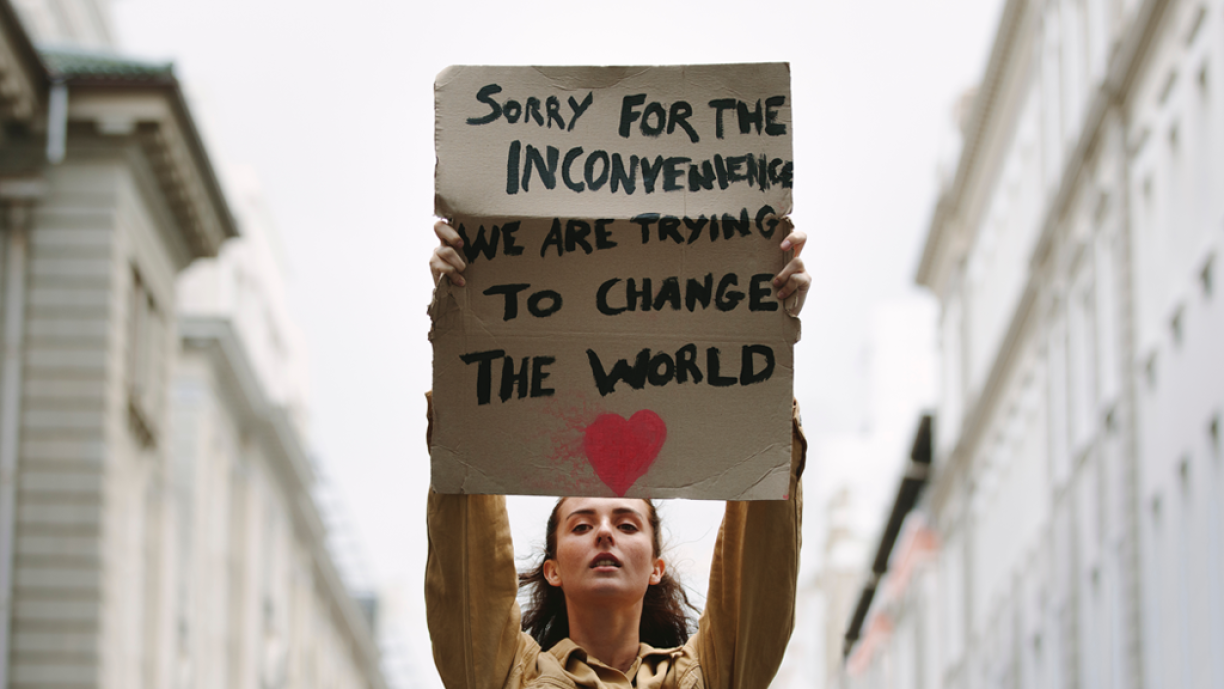
I am in a perpetual state of confusion when it comes to generational labels. Having been born in 1996, it depends on the article whether I’m lumped in with Millennials or Gen Z – or just forgotten about entirely.
One theory I’ve read suggests that those born between ’92 and ’98 should be regarded as a sort of “insular generation,” not quite Millennials but not really Gen Z either. Proposed name: Zillennials. Yeah, I think I’m good just not being part of anything.
I’m telling you this because I’ve recently read an article on a German news website entitled “Gen Z are ‘the most disloyal employees of all time’,” and I wasn’t quite sure at first whether I should be proud of my own generation or the next.
I always get excited when I see headlines like this. Come on, tell me already, what are those evil young people up to this time? Oh, what’s that? They don’t want to rot away in an unfulfilling job at the cost of their own happiness? They want to work less, i.e., finally get rid of work hours set by a patriarchal social system that expected women to stay at home forever while their big brave men take care of the paycheques? They care less about rising to the top but do care about being paid adequately for the work they provide? Gosh, they really are off their rockers, aren’t they…
It’s not surprising to me that the generation that grew up with the internet has such a different mentality. With all the thousands of news stories about it, it is sometimes easy to forget what the internet actually is above all else: the most powerful communication tool ever created.
Thanks to the internet, people are talking to each other. People from all sorts of backgrounds and from all around the world. If there is one thing those in power have always been utterly terrified of, it’s this: people talking to each other about the state of the world.
Workers are talking to each other. You know that weird social rule: “It’s rude to talk about money!” This has always struck me as absolutely ridiculous, and most of the younger generations seem to agree with me on that. Because nowadays, we talk about money: We talk about our salaries, the interest rates we pay, the cost of various different things…
By now, I have read multiple news stories about women talking to their male co-workers and discovering that they are being paid significantly less for the same work. With the result that they successfully insist on a salary adjustment – if necessary, through a labour court ruling.
I want to make it clear that I don’t blame the older generations, I understand that it was simply the culture of the times. There were a lot of things people didn’t talk about in the past: mental health, sexual orientation, gender identity, discrimination, emotional struggles… It just turns out that life is actually a whole lot better for everyone if we just talk to each other openly about these things instead of playing this pointless social charade game of Who is best at pretending not to have a breakdown?
In general, I have always taken issue with this bizarre fatalist attitude a lot of people have towards life’s difficulties. You know that we can improve things, right? This applies to both personal and societal experiences.
If you keep snapping at people over minor things or feel intense anxiety on a regular basis, talk to someone or look into it. You are not forced to live like this and there are many things that could help you live a happier life.
When it comes to societal struggles, we need to recognise the systems in which they take place. Cities don’t have to be noisy, stressful concrete deserts by nature. It’s not some law of the universe that in Luxembourg, half of the population is not allowed to vote in the national elections. These are political choices, and they can be changed.
On a related note, I find that the word ‘tragedy’ is highly inappropriate to use in certain contexts. Describing something as a tragedy implies that there is nothing anyone could have done to prevent it. If a homeless person freezes to death on the streets of one of the richest countries in the world in winter, it’s not a tragedy; it’s a crime.
I realise I have strayed a bit from the original topic, but all of this is connected to the way many young people see the world. It seems to me that Gen Z in particular have understood their own agency in the way the world works even better than those that came before them. Their outlook is often by default more international, more holistic because the digital age has – for better or for worse – opened up the information gates.
It should also not really come as a surprise that new generations have a different perspective on the world than previous ones. The dreams of our parents are not the same as our dreams and their dreams in turn were not the same as those of our grandparents.
I am confident that the Zoomers will inevitably bring about significant societal change, just like previous generations did when they were young. While a reduction in work time, for example, may seem outrageous to some employers now, it is worth remembering that this was the case with almost every significant labour rights demand in history.
So, if Gen Z really are the bane of job recruiters everywhere, I say good on them! With all of the bad news we have to deal with on a daily basis, this is something that, for once, truly gives me hope for the future.